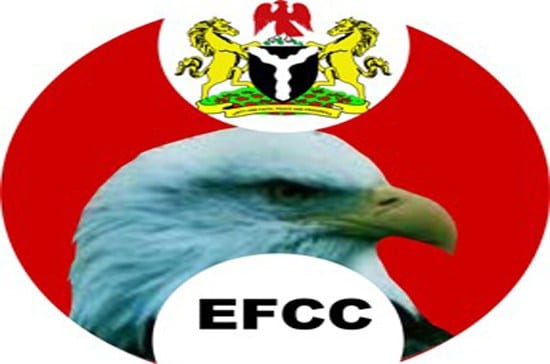Till date, no other definition of history has made as great an impact on me as what our history teacher, Mr. Nwosu taught us in January of 1971. “History”, Nwosu starts in a husky voice, “is the record of past events”. I still have a mental picture of him peering over the rim of his pair of glasses as he declared that, “through history, we learn about how our ancestors lived” before ending on the prescriptive note that, “if they were good, we emulate them but if they were bad we correct or try to improve on what they did”.
I do not recall what made the greater impression on us at the time: whether it was the profundity of the definition or his commanding posture. All the same, with the passage of time, it dawned on me that the message was stronger than the messenger and that those who failed to learn the lessons of history were inexorably condemned to, not just repeating it, but learning the hard lessons of obduracy.
There are so many ways in which Nigerians, with their ears wide open, have remained deaf to the lessons of history. That shouldn’t surprise anyone. For a country that has thrown every virtue to the wind, a country that knows no shame, it is only to be expected that it took the President of France, the youthful Emmanuel Marcon, to remind us what a legend Fela Anikulapo Kuti was; why we should not consign the philosopher musician and social critic to the scrap heaps of history. Fela’s bold depiction of our wrong-headed approach to national issues remains relevant today as it was over three decades ago. If the music of Fela does not strike a note with us today, it should be understood within the context of a people that have lost their moral compass, a nation that is perilously adrift; a people heading precipitously towards self destruction. Nigerians, nearly all of us, appear to be deaf, even mad because, as the sages say, those the gods want to destroy, they first make mad.
What is playing out in Nigeria today is akin to the situation in Anambra State that inglorious day, in 2003, when Dr. Chris Ngige, as governor of the state at the time, was kidnapped from Government House Akwa by agents of the state in whose custody his safety was entrusted. Thus, when recently I came across the publication under the title: “July 10, 2003, Day Sen. Ngige Liberated Anambra State”, by some of Ngige’s associates, it dawned on that, in spite of the shenanigans dogging our national life, there is still hope that we are not all held captive by some form of collective amnesia, that unlike those who, having forgotten their history must relearn it, albeit painfully, we may still escape the damnation that looms so ominously within the horizon.
What followed that bizarre and tense moment was unprecedented in the chequered history of brinksmanship in Nigeria. But the people rallied round Ngige, to the shame of his traducers. The rest is now history, but it is a history that should never be forgotten because doing so would lead to disastrous consequences.
It is in the context of the ramifications of that incident and the lessons of history that the promoters of that publication under reference deserve to be commended. For obvious reasons, the greater credit should go to Ngige whose courage in the face of danger, whose persistence and resistance followed the same line of those patriots who were ready to lay down their lives that democracy could gain a foothold in Nigeria. What Ngige demonstrated was that a time comes when, at the risk of personal danger, even life, the oppressed must confront their oppressor, the victim must go for broke and stake a last ditched effort to achieve freedom; the corollary being that confronted with a groundswell of public angst, the pretenders in our midst will scamper for safe haven; that the fight for freedom and liberation is not a tea party.
What Ngige lost momentarily by way of personal sacrifice and outright humiliation, Anambra State gained in multiple dimensions. The checklist is unassailable. Once he found himself in the eye of the storm, abandoned by members of his party, the medical doctor-turned politician realised that his survival did not lie with the elite but with the people. Thus, unshackled from the arrangement that enslaved Anambra State, Ngige embarked on a wide range of projects undergirded by a governance environment that placed the people above self, infrastructure above ceremonies, due process above arbitrariness and sustainable development above short term gains.
The authors of the publication in question had put the matter in perspective and I wish to quote them: “Inspired by the massive support, the liberation began. Arrears of salaries, pension and gratuity…outstanding from the previous regime were cleared. He went on to institute the Executive Order which placed payment of salaries and pension on First Line Charge and backed it up with relevant laws of the Anambra State House of Assembly. Enabled by this order, salaries are till date paid as and when due”.
That is not all. Continuing, they wrote: “The revolution saw the construction of over one hundred and five roads by reputable contractors. It also saw the beautification of Awka GRA with well-constructed and asphalted roads and the dualization of Nnamdi Azikiwe Avenue, Awka…” I am yet to see any evidence challenging these claims.
Beyond the well deserved encomiums heaped on him, Ngige’s associates have unwittingly challenged us, as a nation, but more specifically, the south east, to interrogate the not-too-distant past, to confront the shenanigans of the present and, by so doing, establish a Modus Vivendi with the future. If Ngige could achieve so much in the face of adversity and with less resources than have been frittered away in some states, if he could defy federally-backed anti-people elements to unshackle Anambra from bondage, why are some states still held captive at a time that we should have achieved a qualitative leap in the ability to override impunity? What this points to is the urgent need to incorporate case studies, a form of peer review, into the orientation of public office holders; to study how their ancestors, read predecessors, performed: if they were good, they emulate them, but if they were bad, they improve on what they did or correct them!
Anyone with a passing knowledge of the Anambra odyssey will agree that in Ngige, God provided a Moses to lead the state, to the Promised Land. Ngige, like his immediate successor, Peter Obi, was not prepared to spend one naira of Anambra money without a clear picture of the deliverables and the strategy for achieving them. Once convinced, he threw his weight behind it. Yes, his weight! If you are looking at his physical size, you are likely to be widely off the mark because as experience has shown, any leader’s weight is not measured by physical size, eloquence, demagoguery or ability to defy court orders. Of greater importance will include: personal integrity, a clear vision/developmental road map, the ability to rally all patriotic stakeholder groups to buy into a developmental paradigm and the willingness to stand by the vision even at the pain of death. It is a tribute to Ngige that, as governor of Anambra State, he stood for all these and more.
It is noteworthy that Ngige has brought the same qualities to his present national assignment as minister of labour and employment. Living up to his reputation as patriot, advocate of the workers and principled party man, Ngige, by his utterances and actions, stands out as one of the shinning lights of the Buhari cabinet. It is a measure of the dexterous management of labour issues by his ministry that we have not recorded a national strike in spite of pent up anger caused by protracted labour disagreements and the economic hardship being experienced by workers. It is my considered opinion that, as we approach the 2019 presidential election, Ngige’s legacy in Anambra, his forthrightness and the political capital he has acquired in the past three years will constitute strong electoral assets for the Buhari candidacy. Only comedians and entertainers will miss this point!




